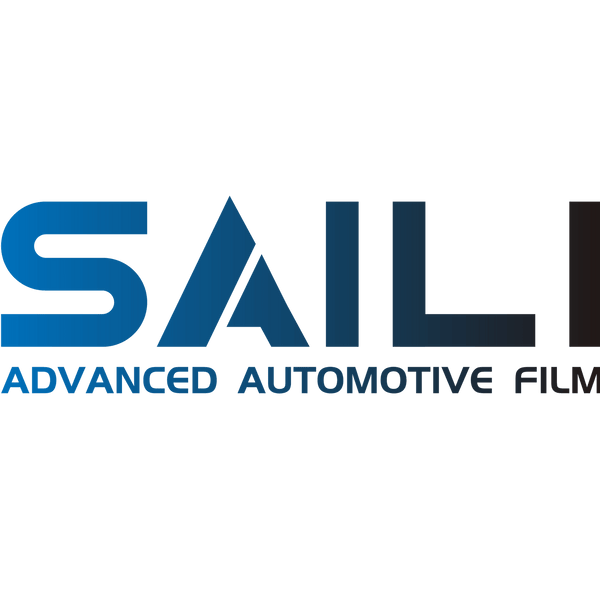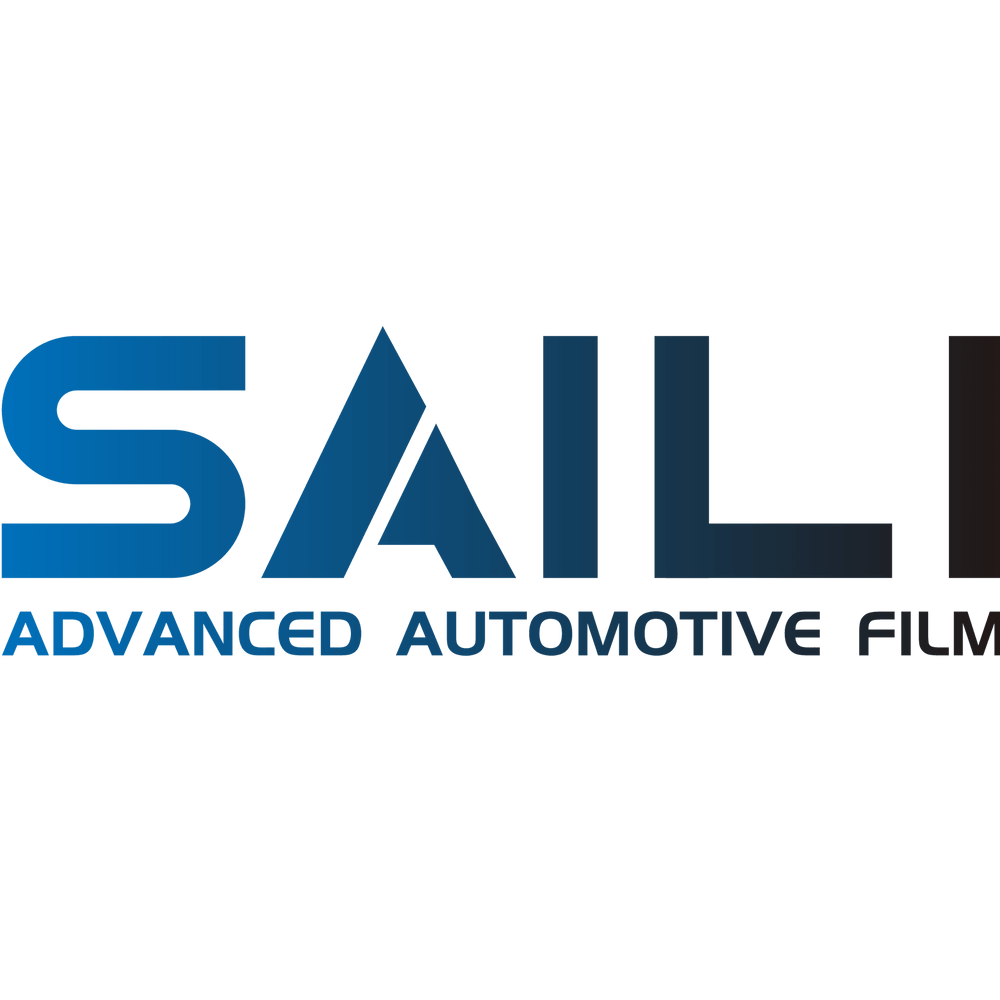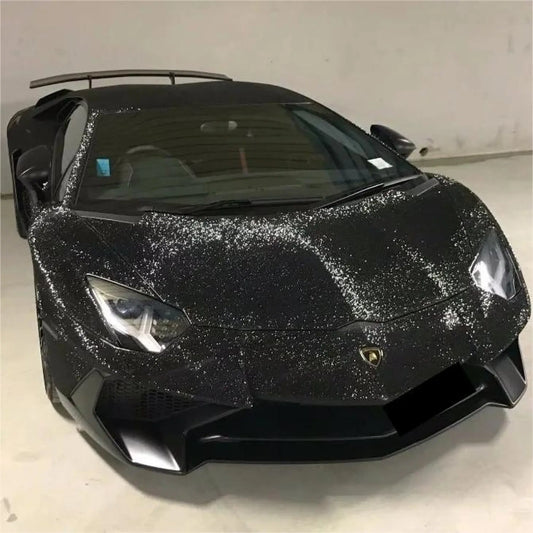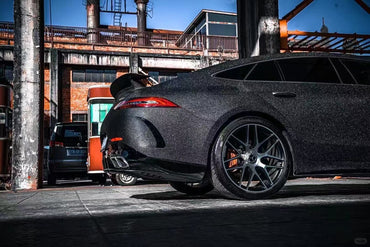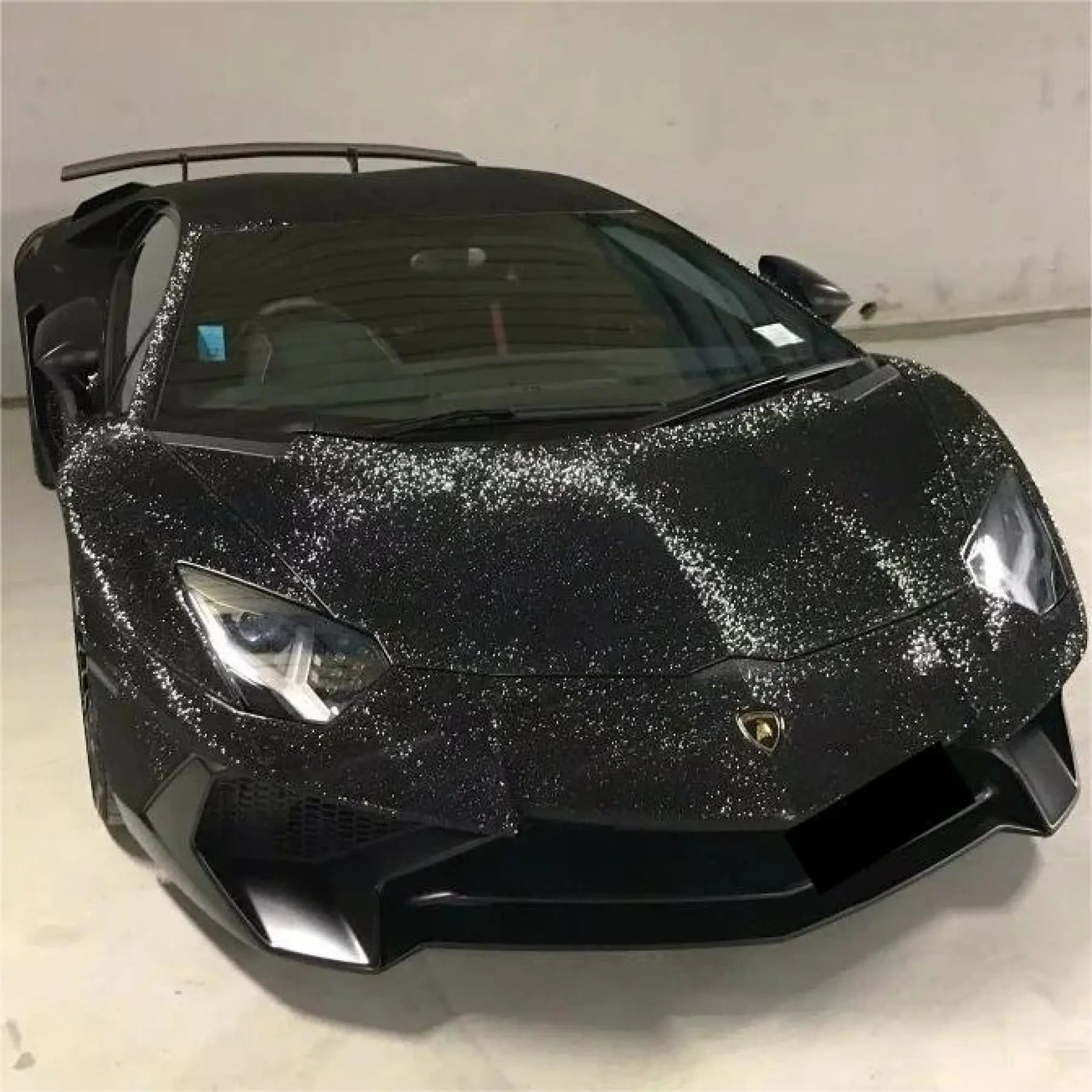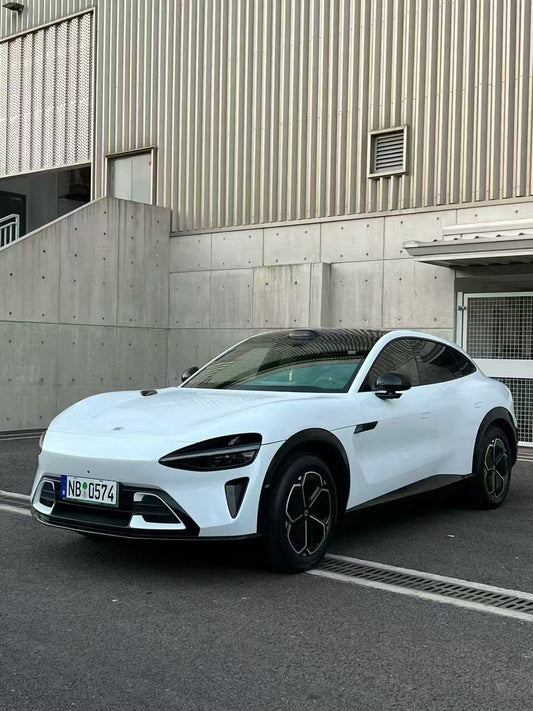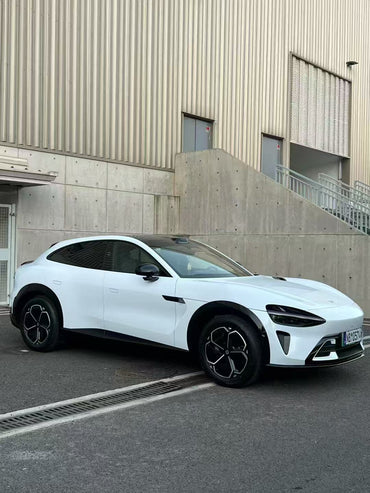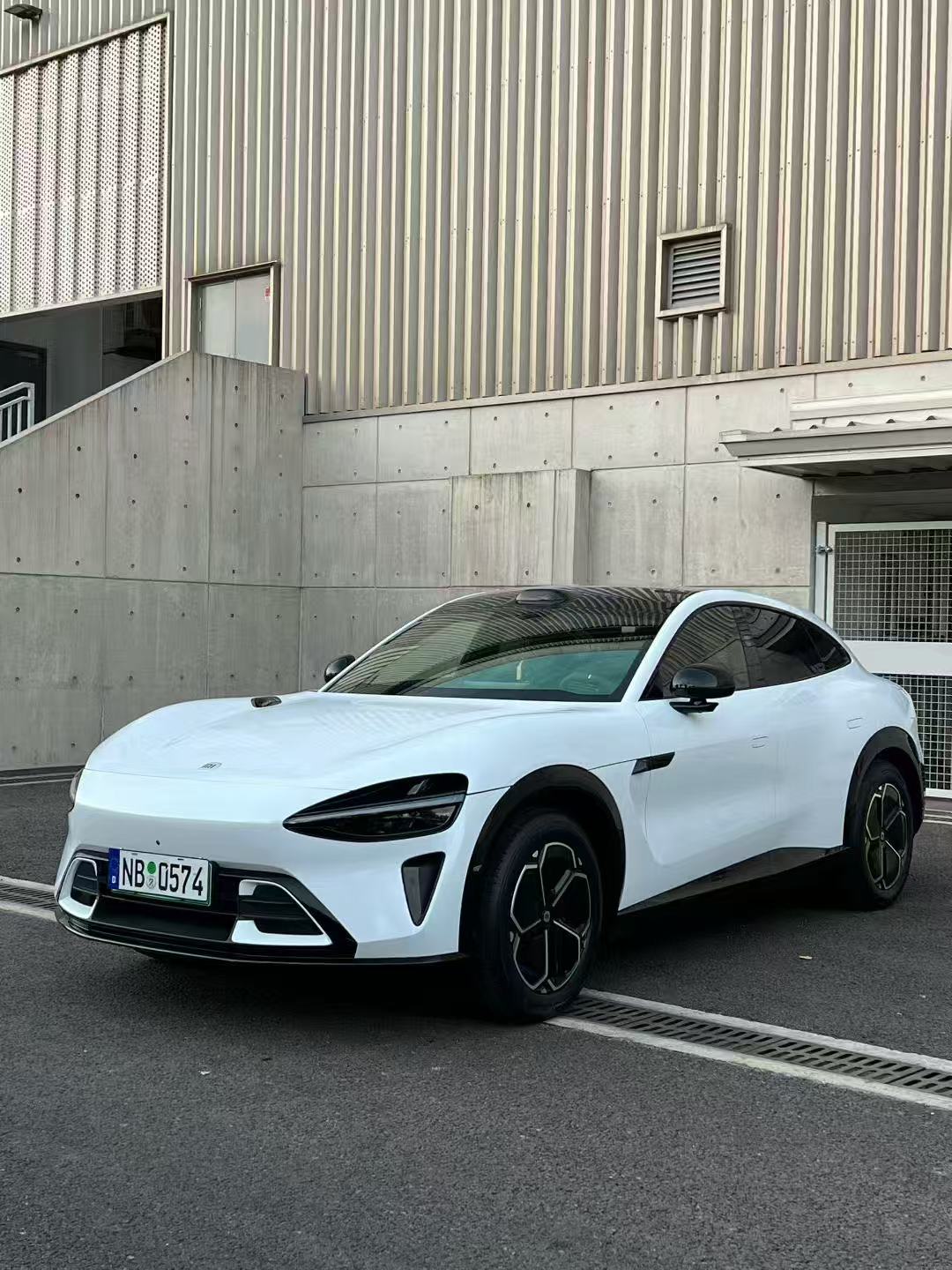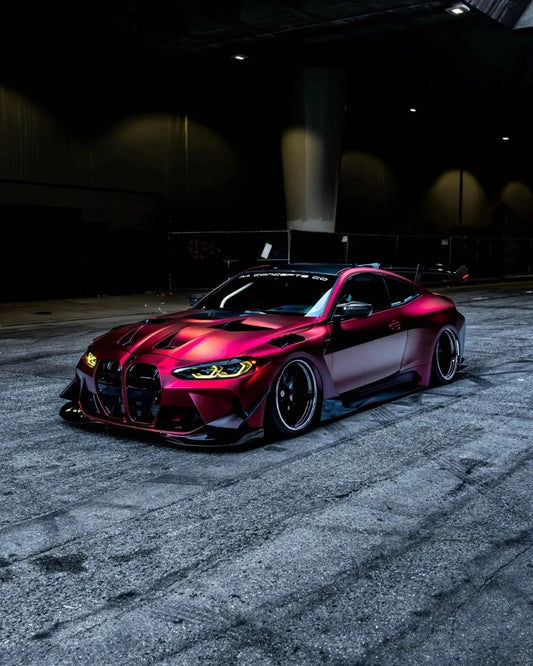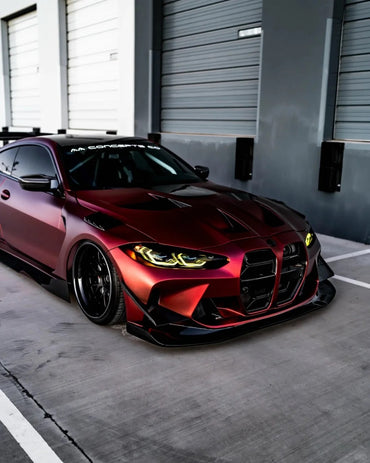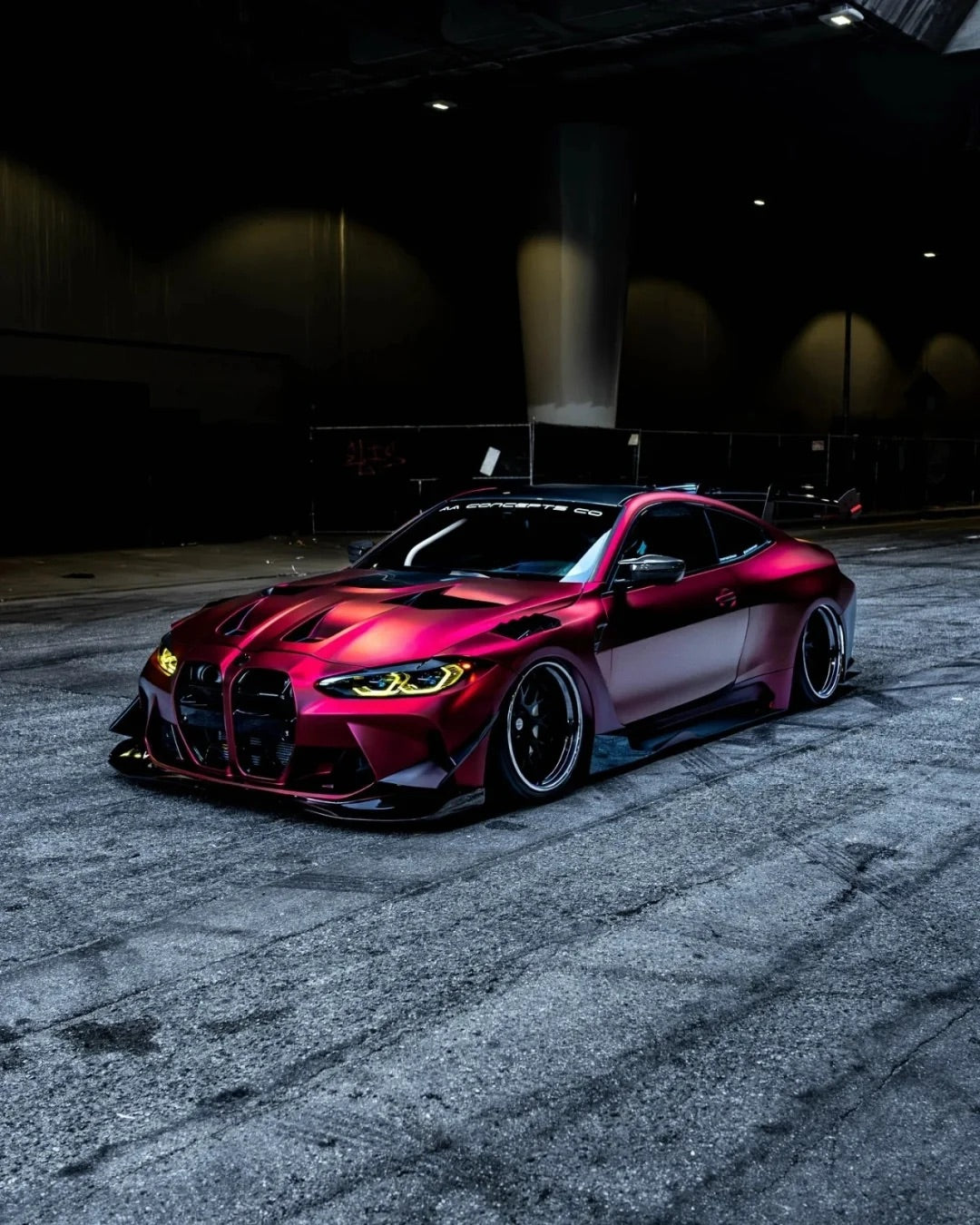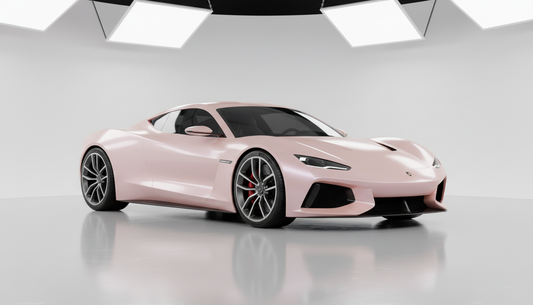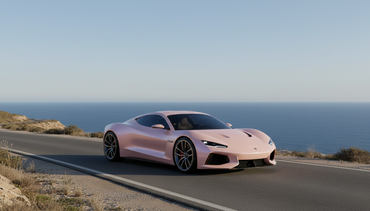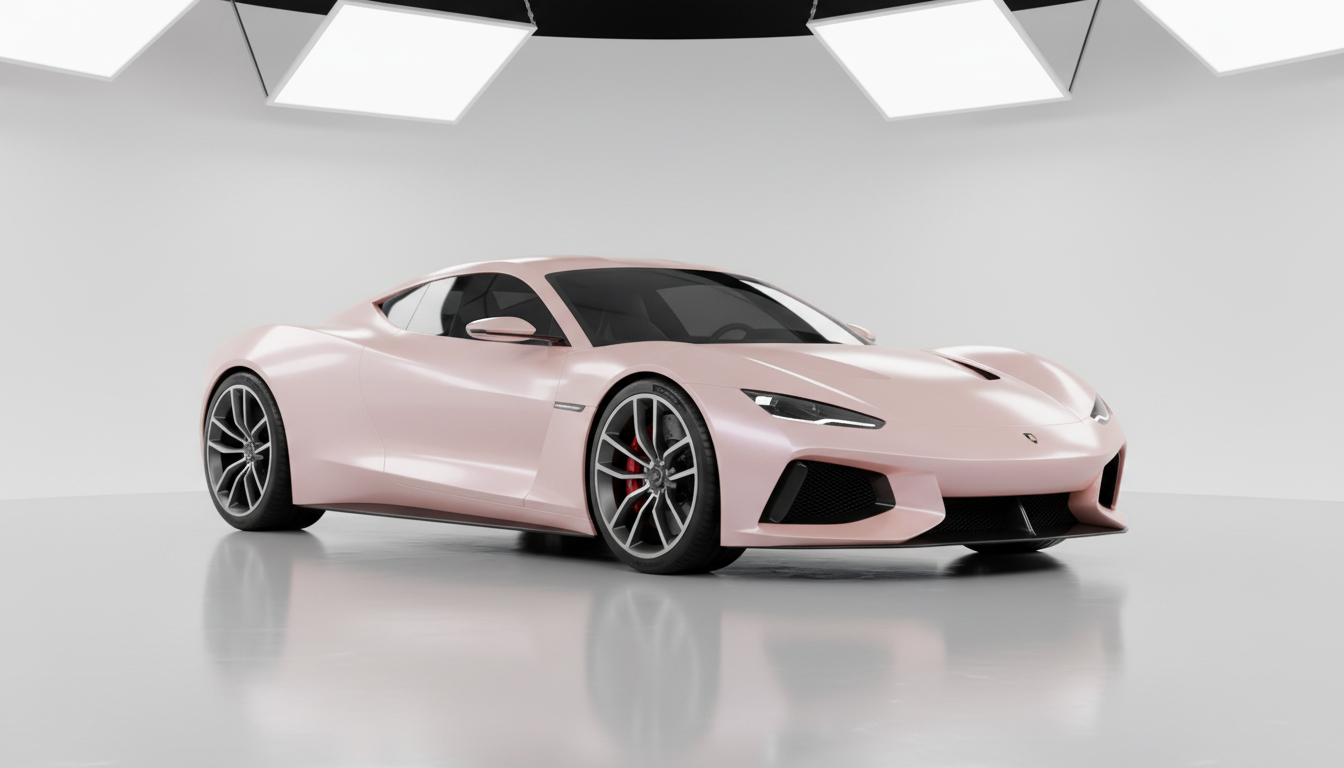Understanding Ceramic Coating: What It Is and How It Works
The Science Behind Ceramic Coating
Ceramic coating is a liquid polymer that chemically bonds to surfaces, creating a semi-permanent, hydrophobic protective layer. Unlike traditional waxes or sealants, ceramic coatings provide significantly longer-lasting protection and durability.
When applied to vinyl wraps, ceramic coating forms a transparent shield that:
- Creates hydrophobic properties (water-repellent surface)
- Resists UV radiation penetration
- Protects against environmental contaminants
- Enhances visual appearance and depth
- Simplifies maintenance and cleaning
The molecular structure of ceramic coating enables it to bond with vinyl surfaces differently than it bonds with paint. Professional ceramic formulations designed specifically for vinyl wraps ensure compatibility and flexibility, preventing the coating from cracking or peeling as the vinyl expands and contracts.
How Ceramic Coating Differs From Paint Protection Film
Many vehicle owners confuse ceramic coating with paint protection film (PPF). These are distinctly different products serving complementary purposes:
Ceramic Coating: Provides UV protection, hydrophobic benefits, and enhanced aesthetics. Primarily offers maintenance advantages and environmental protection.
Paint Protection Film: Clear plastic film offering physical impact protection against rock chips, debris, and scratches. Creates a self-healing barrier against damage.
For maximum protection, many vehicle owners combine both technologies—ceramic coating for maintenance and aesthetics, PPF for impact protection.
The Compelling Benefits of Ceramic Coating on Vinyl Wraps
Enhanced UV Protection and Longevity
One of ceramic coating's most significant benefits involves UV ray protection. Vinyl wraps naturally fade when exposed to intense, prolonged sunlight. Ceramic coatings incorporate UV-blocking compounds that create a barrier, reducing fading by 50-70% compared to uncoated wraps.
Sailifilm's specialty wraps—particularly Metallic Vinyl Wraps and Rainbow Laser Vinyl Wraps—benefit dramatically from ceramic protection. The metallic flakes and laser-etched effects maintain their luster longer when shielded from UV degradation.
Standard vinyl wraps typically last 3-5 years. With ceramic coating protection, lifespan extends to 5-7 years—a potentially 40% increase in useful life.
Hydrophobic Properties and Easier Maintenance
Ceramic coating's hydrophobic nature transforms maintenance requirements. Water and dirt no longer adhere to the surface—they bead up and roll off, significantly reducing cleaning time and effort.
Benefits Include:
Water spots become rare because water doesn't linger on the surface long enough to mineral-deposit form. Dirt and grime bond less effectively, requiring only gentle rinsing rather than intensive scrubbing. Bug splatter, tree sap, and bird droppings release more easily without damaging vinyl. Road salt and industrial contaminants don't penetrate the protective barrier.
Vehicle owners report that ceramic-coated wraps stay noticeably cleaner between washes, eliminating weeks of accumulated grime appearance.
Environmental Protection Against Contaminants
Ceramic coatings shield vinyl from harsh environmental elements:
- Bird Droppings: Acidic contaminants that etch unprotected vinyl are prevented from bonding to ceramic-coated surfaces
- Tree Sap: Sticky substances release easily from hydrophobic surfaces rather than permanently bonding
- Road Salt: Coastal environments challenge all vinyl, but ceramic prevents salt crystallization on the surface
- Industrial Fallout: Airborne particles that normally discolor wraps bounce off ceramic surfaces
- UV Radiation: Creates an invisible barrier against photodegradation
Sailifilm's Colored Paint Protection Film and TPU Paint Protection Wrap already provide excellent protection, but ceramic coating adds an additional defensive layer.
Enhanced Aesthetic Depth and Gloss
Contrary to concerns about ceramic coating altering vinyl appearance, it actually enhances the visual presentation:
For Gloss Finishes: Ceramic coating intensifies glossiness, creating a deeper, more lustrous appearance. Colors appear more vibrant, and the wrap looks freshly installed longer.
For Matte Finishes: Ceramic coating adds subtle depth to Ultra Matte Wraps while preserving the flat aesthetic. The protective layer creates dimension without glossiness.
For Specialty Finishes: Liquid Chrome Wraps, Crystal Vinyl Wraps, and 3D Carbon Fiber Wraps maintain their distinctive visual effects while gaining protective benefits.
Analyzing the Cost-Benefit Equation
Initial Investment Breakdown
Understanding the financial commitment helps determine if ceramic coating justifies the expense.
Professional Application Costs:
- Full vehicle ceramic coating: $500-$2,000
- Factors affecting price: vehicle size, wrap condition, coating quality, installer expertise
DIY Kit Costs:
- Consumer-grade kits: $50-$150
- Requires significant time investment and precision application
- Results vary based on preparation and technique
Full Wrap Plus Ceramic Cost Comparison:
- Vinyl wrap alone: $1,800-$5,000
- Ceramic coating addition: $500-$2,000
- Combined investment: $2,300-$7,000
Long-Term Savings Analysis
While ceramic coating adds upfront costs, financial benefits emerge over time:
Maintenance Reduction: Ceramic-coated wraps require less frequent, intensive cleaning. Annual cleaning supply costs decrease by approximately 30-50%.
Extended Wrap Lifespan: Additional 2-3 years of protective life delays replacement, deferring $1,800-$5,000 expenditure by 24-36 months.
Reduced Detailing Needs: Professional detailing becomes unnecessary; gentle home washing maintains appearance. Average annual detailing costs ($200-$500) become optional rather than essential.
Paint Preservation: If ceramic coating prevents early wrap replacement and protects underlying paint, eventual paint repair or refinishing costs decrease.
ROI Timeline: Most vehicle owners recoup ceramic coating investment within 3-4 years through combined maintenance savings and extended wrap lifespan.
The Challenges and Limitations of Ceramic Coating on Vinyl
Potential Adhesion Issues
While modern ceramic formulations specifically designed for vinyl work reliably, improper application creates complications:
Flexibility Reduction: Ceramic coating's hardened layer can reduce vinyl wrap flexibility. If wraps need repositioning or stretching during application, the coating may crack or peel.
Air-Release Channel Interference: Some ceramic coatings block the air-release channels designed into vinyl wraps, potentially causing bubbling or lifting.
Textured Surface Challenges: Textured wraps (like 3D Carbon Fiber or specialty finishes) may experience uneven coating adhesion due to irregular surfaces.
Application Mistakes and Their Consequences
Improper ceramic coating application creates visible defects:
- Streaking or uneven coverage that becomes permanent
- Missed areas with inconsistent protection
- High spots where coating builds up excessively
- Water spotting from improper curing
- Hazy appearance from inadequate prep work
These mistakes underscore why professional application is strongly recommended for ceramic coating on vinyl wraps, despite the added cost.
Warranty and Compatibility Concerns
Some vinyl wrap manufacturers have adjusted warranty terms specifically addressing ceramic coating concerns:
- Excessive heat during ceramic curing can weaken vinyl adhesive
- Certain ceramic products may not bond properly to low-energy vinyl surfaces
- Improper application can void manufacturer warranties
- Coating removal can damage underlying vinyl if not performed correctly
Always verify ceramic coating compatibility with your specific Sailifilm vinyl wrap before application.
Making the Decision: Is Ceramic Coating Worth It for Your Situation?
Ceramic Coating Makes Sense If You:
Park Outdoors Consistently: Vehicle owners with daily outdoor parking benefit significantly. UV protection and environmental shielding justify the investment for wraps exposed to constant sunlight.
Use Your Vehicle in Harsh Conditions: Coastal areas (salt spray), industrial zones (airborne contaminants), or regions with intense sun exposure amplify ceramic coating's protective value.
Prefer Minimal Maintenance: If avoiding frequent, intensive cleaning appeals to you, ceramic coating's hydrophobic benefits provide substantial quality-of-life improvements.
Own Specialty or Premium Wraps: Liquid Chrome, Rainbow Laser, or Metallic finishes justify coating investment because their premium cost warrants maximum protection.
Prioritize Wrap Longevity: If extending wrap lifespan from 5 to 7 years justifies the investment, ceramic coating delivers measurable value.
Plan Long-Term Vehicle Ownership: Owners keeping vehicles 5+ years recoup ceramic coating costs through extended wrap protection and reduced maintenance.
Ceramic Coating May Not Be Essential If You:
Garage Park Regularly: Vehicles consistently protected from sunlight and harsh weather benefit less from ceramic coating's UV and environmental protection.
Plan Wrap Replacement Within 3 Years: Short-term wrap owners may not realize ceramic coating's longevity benefits before planned replacement.
Have Budget Constraints: If vinyl wrap costs already stretch your budget, ceramic coating adds significant expense.
Live in Mild Climates: Regions without intense sun, salt spray, or extreme weather reduce ceramic coating's protective advantage.
Prefer Frequent Wrap Changes: If you change wraps every 2-3 years for design purposes, protective coatings offer limited value.
Professional Application vs. DIY: What You Need to Know
Professional Application Advantages
Proper Preparation: Professionals ensure wrap surfaces are completely clean, dry, and contaminant-free—critical for proper coating adhesion.
Correct Application Technique: Professional installers apply ceramic coating evenly, avoiding streaks, high spots, and missed areas.
Proper Curing: Professionals manage heat and humidity during curing, ensuring the coating hardens correctly and bonds properly.
Warranty Coverage: Professional application often includes workmanship guarantees covering coating failure or defects.
Time Efficiency: Professional application completes in hours rather than days, minimizing vehicle downtime.
DIY Application Considerations
Cost Savings: DIY kits cost significantly less than professional application ($50-$150 vs. $500-$2,000).
Time Requirements: DIY application requires 6-12 hours of meticulous work, demanding patience and precision.
Skill Dependency: Results depend entirely on your attention to detail and application technique. Mistakes become permanent.
Limited Guarantees: Manufacturer defects may not be covered if you self-applied the coating.
Potential Complications: Improper prep or application can damage your vinyl wrap, requiring costly professional repair.
Recommendation: For ceramic coating on vinyl wraps, professional application is strongly advised unless you have previous ceramic application experience.
Maintenance After Ceramic Coating Application
First 24-48 Hours: Critical Curing Period
After professional ceramic coating application:
- Do not wash the vehicle
- Avoid exposing the vehicle to rain or moisture
- Park in sheltered areas to protect curing coating
- Allow full hardening time (typically 24-48 hours)
This curing period is non-negotiable. Rushing back to regular use compromises coating effectiveness and durability.
Long-Term Maintenance Protocol
Washing Frequency: Hand wash every 1-2 weeks with pH-neutral, vinyl-specific soap and soft microfiber cloths.
Water Beading Maintenance: Ceramic coatings gradually lose hydrophobicity. Toppers (spray-on refresh coatings) reapply every 3-6 months to maintain water-beading properties.
Contaminant Removal: Remove bird droppings, tree sap, and road salt immediately. These acidic substances can still damage vinyl if left to dry.
Avoid Automatic Car Washes: Brush-based car washes damage ceramic coatings. Contactless washes are acceptable if necessary.
Never Use Traditional Wax: Car waxes leave residue that clouds ceramic-coated surfaces. Avoid silicone-based products entirely.
Annual Inspection: Evaluate coating condition annually. Professional reapplication every 1-2 years maintains peak protection.
Real-World Application: Sailifilm Product Integration
Ceramic Coating with Premium Metallic Wraps
Sailifilm's Metallic Vinyl Wraps showcase dramatic improvements with ceramic coating. The metallic flakes maintain their lustrous shimmer longer, and the protective layer prevents the slight surface dulling that occurs over time.
Enhanced Protection for Specialty Finishes
Signature Sailifilm collections benefit substantially from ceramic protection:
- Rainbow Laser Vinyl Wraps: Ceramic coating preserves the intricate laser-etched effects and color-shifting properties
- Liquid Chrome Wraps: The ultra-reflective surface maintains mirror-like appearance longer
- Crystal Vinyl Wraps: Transparent finishes maintain clarity and color definition
- 3D Carbon Fiber Wraps: Textured surfaces gain protective benefits while maintaining tactile appeal
Layered Protection Approach
For maximum protection, combine Sailifilm's TPU Paint Protection Wrap or Colored Paint Protection Film with ceramic coating:
- TPU/Paint Protection Film provides physical impact resistance
- Ceramic coating adds environmental and UV protection
- Combined approach extends wrap lifespan significantly while maintaining appearance
Practical Alternatives and Complementary Solutions
Vinyl-Specific Protective Sprays
If ceramic coating's investment seems excessive, vinyl-specific protective sprays offer budget-friendly alternatives. These products provide hydrophobic properties and UV protection, though durability ranges from 1-6 months before reapplication.
Professional Detailing Services
Regular professional vinyl wrap detailing (every 3-6 months) extends wrap life by removing contaminants and applying protective sprays, offering a middle-ground alternative to permanent ceramic coating.
Sample Testing Before Commitment
Sailifilm's Sample Kits collection allows testing wrap aesthetics before full-vehicle investment. Similarly, professional ceramic coaters often apply test sections, letting you evaluate appearance changes before committing to full vehicle coverage.
The Verdict: Is Ceramic Coating Worth the Investment?
For Most Vehicle Owners: Yes. The combination of extended lifespan (2-3 additional years), dramatically reduced maintenance requirements, and enhanced protection justifies the investment for anyone planning to keep their wrapped vehicle for more than 4-5 years.
Specific High-Value Scenarios:
- Outdoor-parked vehicles in sunny climates
- Premium or specialty vinyl wraps (especially Metallic or Rainbow Laser options)
- Commercial fleet vehicles where appearance and durability directly impact brand perception
- Vehicles in coastal or industrial environments
When to Skip Ceramic Coating:
- Garaged vehicles rarely exposed to elements
- Short-term wrap plans (2-3 years maximum)
- Severe budget constraints
- Mild climate locations without intense sun exposure
Conclusion: Protecting Your Vinyl Wrap Investment
Ceramic coating for vinyl wraps represents a smart investment for most vehicle owners seeking maximum protection and longevity. While the upfront cost appears significant, the combination of extended wrap lifespan, reduced maintenance demands, and enhanced protection delivers measurable value over time.
Sailifilm's comprehensive vinyl wrap collections—from Ultra Matte Wraps to specialty finishes—justify ceramic coating investment by maximizing the lifespan and appearance retention of your customization investment.
Professional ceramic coating application ensures proper bonding, even coverage, and warranty-backed results that DIY attempts cannot guarantee. The additional cost proves worthwhile compared to the expense of premature wrap replacement or appearance degradation.
For vehicle owners prioritizing protection, aesthetics, and long-term value, ceramic coating transforms vinyl wrap maintenance from a frustrating necessity into a simple, effortless process—making your wrapped vehicle remain showroom-fresh for years to come.
External Reference Links
- Wikipedia: Ceramic Coating Technology
- Polymer Chemistry and Hydrophobic Surfaces
- UV Radiation and Material Degradation
- Professional Ceramic Coating Standards
- Automotive Protective Coating Research
- Vehicle Maintenance and Coating Durability Guide
- Professional Ceramic Application Best Practices
- Advanced Vinyl Wrap Technologies: TPU and Self-Healing Coatings
